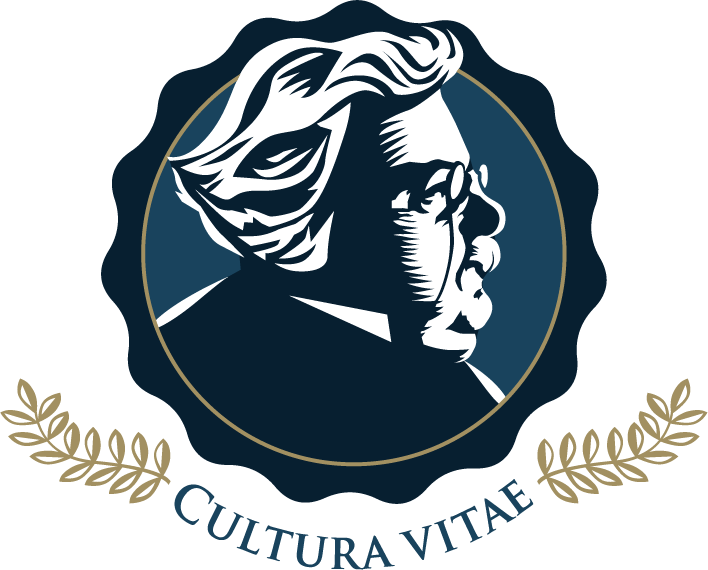True Grit: Something New To Ponder Each Time
I keep returning to Mark Twain’s adage about liking a “good story well told.” This phrase is the perfect way to describe Charles Portis’s novel., True Grit. There is much to love about this book. It is laugh-out-loud funny, full of a great cast of characters, short, suspenseful, and, as quoted in the intro audio, “artistically perfect.” This book appears on my Top 10 list for all these reasons and more, not the least of which is that it’s just plain fun. And how often do I allow myself to read for pure pleasure?
A.G. Sertillanges, a Dominican priest and scholar, distinguishes four kinds of reading in Chapter VII of his book, The Intellectual Life: fundamental reading for one’s formation, accidental reading for information, edifying/stimulating reading to invigorate, and recreative reading for relaxation. It’s this last category that most of us tend to eschew. Amid busy family life, it can be hard to find time to read. When we do, we can approach it as an obligation, only allowing ourselves spiritual, useful, or hard books. Sertillanges’s first three categories are important—but so is his fourth. He instructs us to find books that are recreative enough (but not too much so) and reminds us that “taste in this matter is the capital thing” (156). For what gives us real rest, Sertillanges writes, quoting St. Thomas Aquinas, is joy.
For each type of reading, Sertillanges specifies what is required. For recreative reading, it is freedom. Some of us don’t exercise this freedom, but Alan Jacobs says, “It’s never too late to begin this new life as a free reader” (24). In his book, The Pleasures of Reading in an Age of Distraction, Jacobs advocates for reading at whim “for the plain old delight and interest of it, not because we can justify it” (16). He, too, uses St Thomas’s word, “joy,” and warns us that we often mistrust pleasure when it comes. Jacobs also cautions against making only Great Books our “steady intellectual diet, any more than you would eat at the most elegant of restaurants every day” (23). It would simply be too much to rise to the challenge demanded by these books all the time.
True Grit is a favorite reread of mine, and it’s one of only a few books that, upon finishing it, I want to turn right back to the first page and read it all over again. This is a response I see in my children when they have enjoyed a book, and according to C.S. Lewis in An Experiment in Criticism, it’s the correct one. ”At a first reading of some great work [young readers] are ‘knocked flat.’ Criticise it? No… read it again” (92). In an earlier chapter of his book about reading, Lewis critiques the use of the word “childish” as a term of disapproval, distinguishing between the characteristics of childhood we ought to outgrow and the ones we are better off keeping. “But who in his senses would not keep, if he could, that tireless curiosity, that intensity of imagination, that facility of suspending disbelief, that unspoiled appetite, that readiness to wonder, to pity, and to admire?” (72)
We parents are all too familiar with our children’s tireless curiosity and unspoiled appetite. We’re all tired of rereading a picture book for the umpteenth time to our child who just can’t get enough of it, but G.K. Chesterton reminds us that the flaw here is ours, not theirs. “Because children have abounding vitality, because they are in spirit fierce and free, therefore they want things repeated and unchanged. They always say, ‘Do it again;’ and the grown-up person does it again until he is nearly dead. For grown-up people are not strong enough to exult in monotony. But perhaps God is strong enough to exult in monotony. It is possible that God says every morning, “Do it again” to the sun; and every evening, “Do it again” to the moon… It may be that He has the eternal appetite of infancy; for we have sinned and grown old, and our Father is younger than we” (Orthodoxy, 52).
I like this idea of the “eternal appetite of infancy” as something valuable to hold on to, even in adulthood. “The process of growing up,” Lewis concurs, “is to be valued for what we gain, not for what we lose” (72). So, one way we can grow as readers is by becoming like little children. Perhaps we are being invited to allow ourselves to read for taste and indulge in worthy, recreational, well-told stories, reading them repeatedly without tiring, always ready to wonder, pity, and admire.
This is how I approached True Grit, which I’m grateful Well-Read Mom gave me an excuse to reread. Like all good books, it only gets better with each read. This book, which I so happily pick up for all its enjoyable traits, is deceptively deep and gives me something new to ponder each time. This time, I get to experience the added joy of reading it in a community.
Nicki Johnson is a frequent contributor to Wonder & Joy and an experienced home educator. You can meet her on June 8, when she’ll be a presenter for the All Roads Lead to Chesterton early childhood education discussion in the Faustina building auditorium. This article first appeared in the Well-Read Mom online journal.

